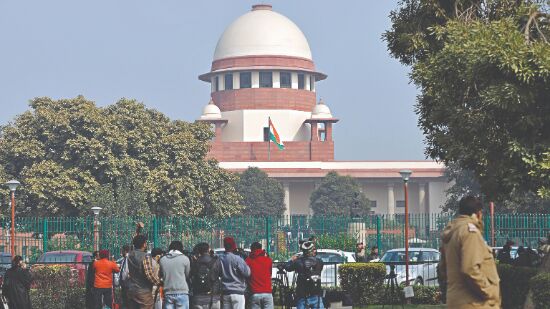SC set to hear appeal of Delhi HC bail order in UAPA case of riots

New delhi: The Supreme Court is scheduled to hear on Thursday the petitions filed by Delhi Police challenging the Delhi High Court verdicts granting bail to three student activists in a north-east Delhi riots case.
The apex court had on June 18 expressed its displeasure over the high court discussing the entire Unlawful Activities (Prevention) Act (UAPA) in a bail matter and made it clear that the judgements shall not be treated as a precedent and may not be relied upon by any of the parties in any of the proceedings.
The top court, which had agreed to hear the appeals filed by police and issued notices to JNU students Natasha Narwal and Devangana Kalita and Jamia Millia Islamia University student Asif Iqbal Tanha seeking their responses, had refused to stay the high court verdicts.
The apex court had clarified in its June 18 order that release of these students on bail was not being interfered with at this stage.
The pleas would come up for hearing on Thursday before a bench of Justices Sanjay Kishan Kaul and Hemant Gupta.
While hearing the matter last month, the top court had taken note of Solicitor General Tushar Mehta's submission that the entire UAPA has been "turned upside down" by the high court in granting bail in the case and observed that the issue is important and can have pan-India ramifications.
The high court had said although the definition of terrorist act' in Section 15 of the UAPA is wide and somewhat vague, it must partake the essential character of terrorism and the phrase terrorist act' cannot be permitted to be applied in a cavalier manner to criminal acts that squarely fall under the Indian Penal Code.
The Delhi Police has assailed the verdict, saying the interpretation of high court would weaken the prosecution in terror cases.
The police further contended in its appeal that the high court had said the UAPA provisions can only be applied to deal with matters of profound impact on the Defence of India', nothing more and nothing less.
The high court had on June 15 granted bail to the three student activists saying in an anxiety to suppress dissent the State has blurred the line between right to protest and terrorist activity and if such a mindset gains traction, it would be a "sad day for democracy".



